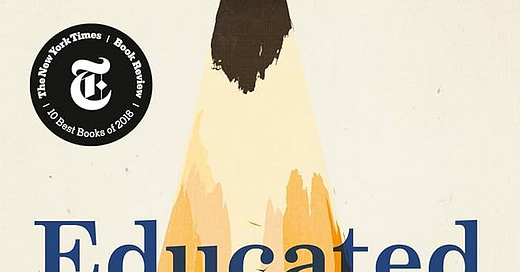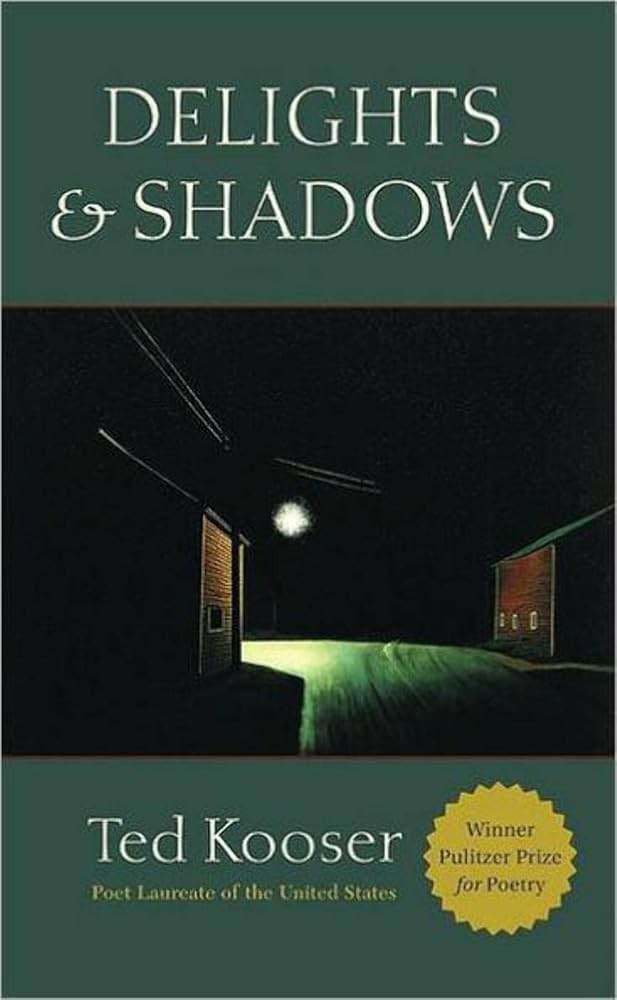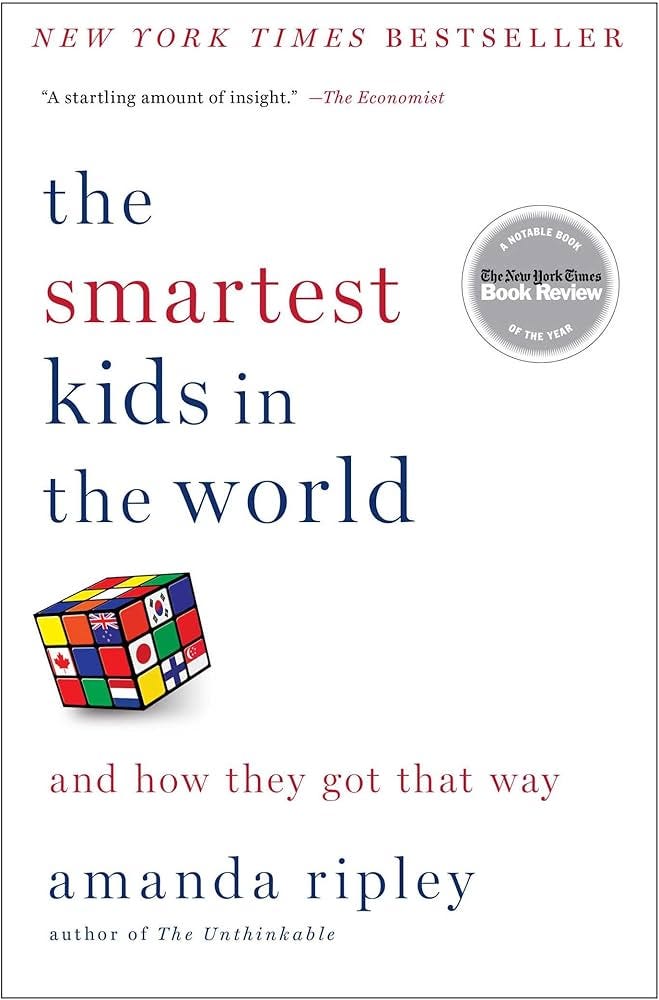Good Sentences: Back to School (August 2024)
Students have arrived back on campus this month, so we thought we’d put together some back-to-school-themed materials to celebrate.
Enjoy!
—The Good Sentences Team
1. Poetry: Student by Ted Kooser (2007)
Favorite Sentence:
“He has extended his neck to its full length, and his chin, hard as a beak, breaks the surf.”
—Picked by Maria Rogers, Class of 2025 (Favorite Law School Class: Legal Practice with Prof. Beth Wilensky)
2. Fiction: Come and Get It by Kiley Reid (2024)
Favorite Sentence: “She took one of the La Croixs, wished it was colder, and popped it open.”
—Picked by Ayesha Qureshi, Class of 2025 (Favorite Law School Class: Michigan Innocence Clinic with Prof. Dave Moran and Prof. Imran Syed)
3. Nonfiction: Educated by Tara Westover (2018)
Favorite Sentence: “If the conifers and sagebrush are soloists, the wheat field is a corps de ballet, each stem following all the rest in bursts of movement, a million ballerinas bending, one after the other, as great gales dent their golden heads.”
—Picked by Lenneal McKudu, Class of 2026 (Favorite Law School Class: Evidence with Prof. Len Niehoff )
Michigan Sentences: Here’s an article co-authored by Professor Christina Weiland, who teaches at the Marsal School of Education and co-directs the Education Policy Initiative at the Ford School of Public Policy. The article answers questions about the state of Michigan’s new investments in preschool education.
Michigan is Spending $107 Million More on Pre-K: Here’s What the Money Will Buy (2023)
Sample: “Decades of rigorous research show that children who attend high-quality pre-K programs are more ready for kindergarten, meaning they have on average stronger language, literacy, math, social emotional and executive function skills than their peers who did not attend preschool. Dual-language learners, children of color, children from families with low incomes and children with disabilities particularly benefit from high-quality pre-K. Pre-K also supports families by giving parents time to work.”
Syllabus Sentences: Here’s a chapter I give students to help them design an academic schedule that pushes them to learn and grow—without burning out.
“Challenge and Recovery” (Chapter 5 of Feedback Loops)
Sample: “Once you have looked at the past few weeks to figure out which days were your challenge days and which were recovery days, turn your attention to the next few weeks. What mix of challenge and recovery do you think you should aim for now? Think about when you’re likely to have to push yourself to perform at a high level, as well as about when you’ll need to build in time to slow down, unwind, and repair.”
“In addition to considering the total number of challenge days and the total number of recovery days, be mindful of the sequence of those days. Twenty-eight straight challenge days followed by two recovery days is not a good plan—unless, of course, your main goal next month is to be exhausted, error-prone, crabby, and generally resentful of anyone who looks relaxed and well-rested.”
“At the same time, however, as nice as twenty-eight recovery days followed by two challenge days may sound right now, I doubt that is the optimal schedule (at least in the long term) for a lot of people. It’s certainly not the optimal schedule for the students I tend to teach and advise. Nobody’s reason for going to law school, business school, or medical school is ‘Because I want to coast.’”
Book Recommendations
For good sentences by a professor who studies schools
The End of Average by Todd Rose (2015)
Sample: “It is not that the average is never useful. Averages have their place. If you’re comparing two different groups of people, like comparing the performance of Chilean pilots with French pilots—as opposed to comparing two individuals from each of those groups—then the average can be useful.
But the moment you need a pilot, or a plumber, or a doctor, the moment you need to teach this child or decide whether to hire that employee—the moment you need to make a decision about any individual—the average is useless. Worse than useless, in fact, because it creates the illusion of knowledge, when in fact the average disguises what is most important about an individual.”
For good sentences by a journalist who studies schools
The Smartest Kids in the World by Amanda Ripley (2013)
Sample: “I’d been looking around the world for clues as to what other countries were doing right, but the important distinctions were not about spending or local control or curriculum; none of that mattered very much. Policies mostly worked in the margins. The fundamental difference was a psychological one. The education superpowers believed in rigor. People in these countries agreed on the purpose of school: School existed to help students master complex academic material. Other things mattered, too, but nothing mattered as much.”
For good sentences in a novel set in a school
The Topeka School by Ben Lerner (2019)
Sample: “Nothing is a cliché when you’re living it.”
Quick Tip
Here’s a quick tip on a distinction that can benefit students of all kinds: the difference between editing and proofreading.








![The End of Average: How We Succeed in a World That Values Sameness [Book] The End of Average: How We Succeed in a World That Values Sameness [Book]](https://substackcdn.com/image/fetch/$s_!2p7a!,w_1456,c_limit,f_auto,q_auto:good,fl_progressive:steep/https%3A%2F%2Fsubstack-post-media.s3.amazonaws.com%2Fpublic%2Fimages%2F0132b9a9-7f58-4e43-b3db-98cda1710def_662x1000.jpeg)


